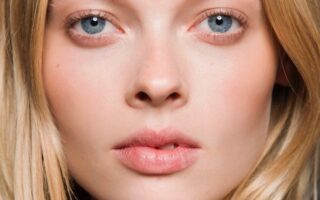It is very important to understand what you apply to yourself, isn’t it? It is equally important to understand what products are bad for you. There are several controversial ingredients in our beauty products, of which we are not always sure of their real impact or their “danger” on our health. Here is a little more information on some of them.
The perfumes
The mention of “perfume” on a cosmetic almost always means “artificial perfume”. Only a few natural products, usually lesser-known and more expensive brands, use natural essential oils as fragrance.
Are artificial fragrances dangerous? It is first a question of irritation: some people are very sensitive to perfumes in products and will have different reactions, often after just one or a few applications. So if you have sensitive and easily irritated skin, choose fragrance-free products
But beware! Reading the ingredients remains important. There are sometimes unscented products that still contain fragrances! Indeed, even if these products do not necessarily have a specific smell (for example grapefruit or jasmine), they will contain a small amount of synthetic perfume to mask or eliminate the smell of certain ingredients.
But the problem does not end there. Artificial fragrances are mostly derived from petroleum products. A study conducted numerous tests to build its database of the toxicity of beauty products, and the results indicate that “the average product contains 14 different scents, including chemical compounds that are associated with hormonal disruption and allergic reactions ”.
The study adds that “many of these substances have not been evaluated for safety in personal care products and that some of these ingredients have troubling hazardous properties, or a propensity to accumulate in human tissues. »
Additionally, product labelling laws and standards do not require manufacturers to disclose what fragrances they use, which is why most labels only list the word “Fragrance”. It’s all quite worrying! Especially when we know that we often use several products daily, which multiply our exposure.
Parabens
Parabens are preservatives that allow products to last longer on the shelves. They also make it possible to prevent or delay the proliferation of bacteria in cosmetics. They are very efficient in their task, non-irritating and have been used since the 1920s.
The problem is that they have recently been associated with a risk of cancer, especially breast cancer, in addition to mimicking estrogen in the human body, i.e. being an endocrine disruptor.
On the other hand, none of these dangers has been proven. Some sources claim that the precautionary principle prevails and that parabens should therefore be avoided, while others believe that there are no risks since these ingredients are used in very low doses, considered safe in products. of beauty.
If you’re worried, it’s become quite easy to avoid them in the last few years, since many products have eliminated them, even in mainstream and inexpensive brands.
Phthalates
They are chemical compounds that allow formulations to remain flexible and malleable. They are used in countless products, ranging from cosmetics to plastics.
They are controversial because they are considered endocrine disruptors, which can cause damage to the reproductive system in women, but also men and children. In addition, they are accused of being carcinogenic, but the cause seems less clear for the moment.
If only as a precaution, it would be a good thing to avoid them by looking for products that are free of them.
Triclosan
Triclosan is an antibacterial agent mostly used in hand soaps, but also liquid body soaps and toothpaste.
Many studies suggest that it would be an endocrine disruptor and that it could be carcinogenic. The other problem is that the use of antibacterial products would not be more effective than just washing with soap and water while being harmful from a public health point of view.
Indeed, these agents would directly contribute to the development of antibiotic-resistant super-bacteria. This is not what we want! This ingredient should therefore be avoided as much as possible.
Aluminium
It is used in antiperspirants, so to block perspiration. For several years, it has been attributed an increased risk of developing breast cancer and Alzheimer’s disease. Once again, scientists do not agree on the risk of breast cancer: some believe that the link between the two is non-existent, while others advocate more studies.
